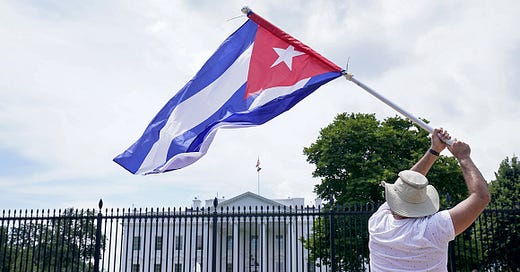The Obama plan for Cuba was normal imperialism. The normalization of relations only meant that Cuba, in the vanguard of Latin American anti-imperialist nations, would no longer be targeted for regime change. The Obama administration recognized that the six-decade effort of trying to overthrow the revolution had failed, so a different strategy had to be adopted. The new strategy directed U.S. initiatives toward supporting the expansion of a class of entrepreneurs, which had been emerging with greater economic force as a part of the plan of the Cuban social and economic model of 2012. The Obama plan hoped that an expanding entrepreneurial class, with economic relations with the USA, would form the social base for a counterrevolutionary opposition. This strategy of imperialist normalization with respect to Cuba was combined with the launching of an unconventional war against the other vanguard nations of Latin America (Venezuela, Bolivia, and Nicaragua), so that Cuba would lose…
© 2025 Charles McKelvey
Substack is the home for great culture


